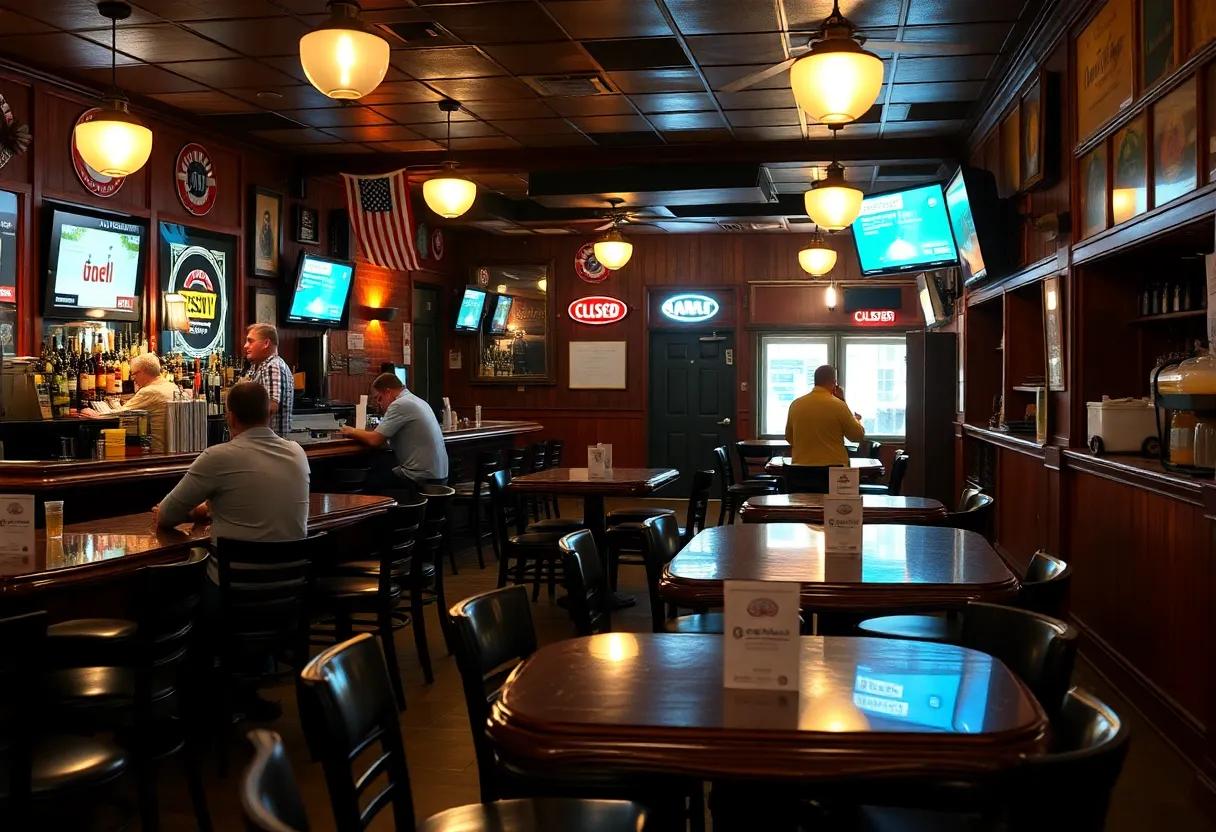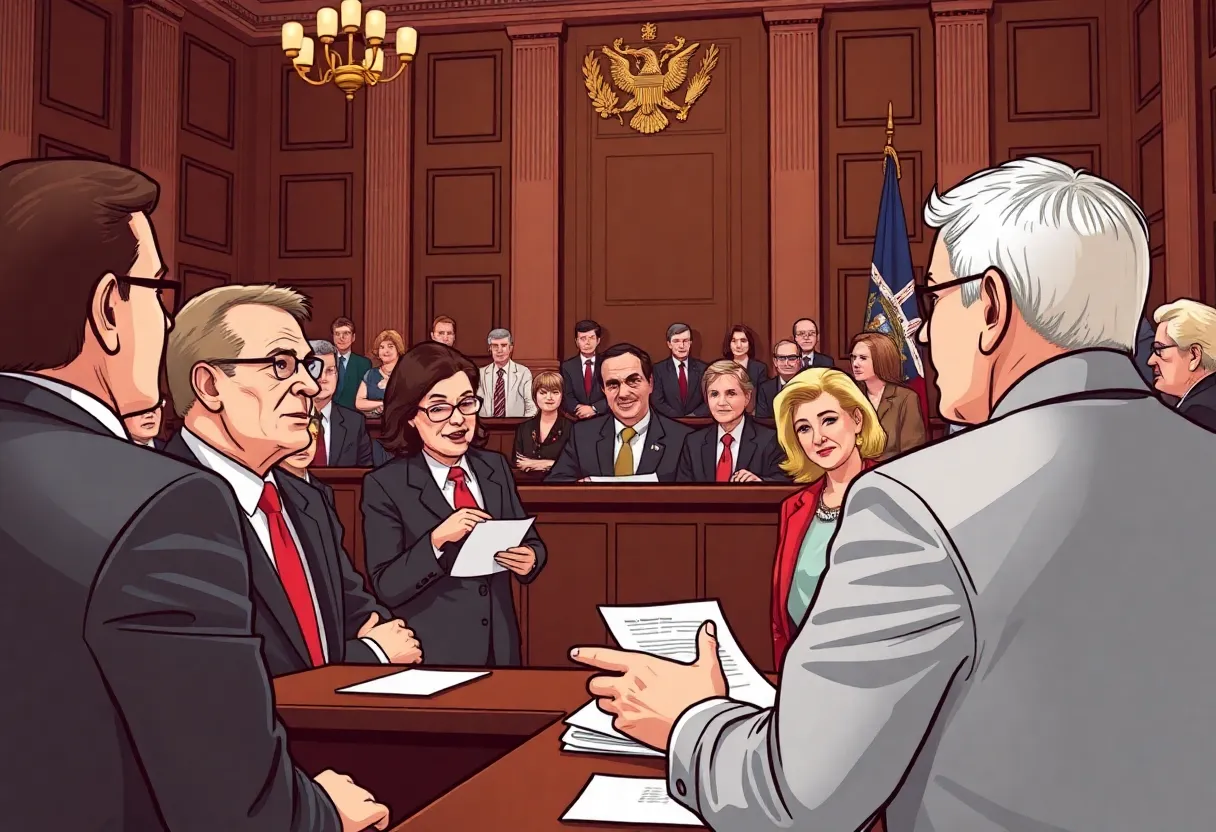News Summary
South Carolina lawmakers are proposing new legislation to reduce liquor liability insurance costs for local businesses as rates have skyrocketed. With premiums doubling for 2024, many establishments are struggling, leading to closures like The Brew Cellar. Proposed bills aim to lower required coverage and enhance transparency in insurance reporting, seeking to balance the needs of businesses and victims’ rights.
South Carolina Lawmakers Tackle Soaring Liquor Liability Insurance Costs!
As the lively and vibrant city of Columbia buzzes with excitement, South Carolina lawmakers are stepping up to address a growing concern that’s hitting local businesses hard. With liquor liability insurance rates skyrocketing, many establishments are feeling the financial pinch, prompting state officials to propose significant changes to the existing laws governing liquor liability.
Businesses Struggling as Insurance Premiums Soar
It’s a tough time for many bar and restaurant owners, as reports indicate that insurance premiums for the upcoming 2024 year have doubled for several local establishments. The surge in costs has left many owners in a difficult position, as they grapple with the tough choice of renewing their pricey insurance policies or shutting down for good.
A notable casualty of these rising costs has been The Brew Cellar, which recently announced its closure just two days after celebrating its 11th anniversary. The owners cited the financial strain imposed by liquor liability laws as a driving factor behind their heartbreaking decision.
New Legislation on the Horizon
In light of these challenges, newly elected State Sen. Ed Sutton is leading the charge for change with a promise that he will introduce a new bill focused on amending the current liquor liability laws. Currently, a state law requires businesses serving alcohol after 5:00 p.m. to carry a minimum liquor liability insurance policy of $1 million. Many believe this requirement has become untenable for small businesses, particularly as multiple insurers have left the market, forcing others to jack up their rates.
The proposed legislation, dubbed Senate Bill 244, aims to ease the burden on local businesses by lowering the minimum required liquor liability insurance coverage from $1 million to $500,000 for most businesses and even down to $300,000 for nonprofits. Additionally, the bill seeks to modify joint and several liability rules, ensuring businesses only pay damages in proportion to their share of fault in any liabilities created by overserved patrons.
Balancing Interests: Victims and Businesses
While the potential changes seem like a promising solution for struggling business owners, they are also stirring up strong reactions from victim advocates. Supporters of the current liquor liability laws argue that maintaining robust coverage is crucial for protecting victims of alcohol-related incidents. Their concern is that reducing liability requirements could leave impacted individuals without adequate recourse.
When it comes to new business owners entering the scene, the same worries persist. Many find the high cost of liability insurance to be a major roadblock, preventing them from successfully starting their operations. The current liquor liability laws, which impose equal liability on all establishments licensed to serve alcohol, have been cited as a significant factor in the uptick of insurance premiums.
The Call for Transparency
In addition to the changes proposed in SB 244, lawmakers are also working on Senate Bill 397, which aims to enhance reporting transparency for liquor liability insurers. This would help business owners and the public alike better understand how insurance rates are determined and create a more stable market moving forward.
Looking Ahead: Hope for the Future
As discussions surrounding these crucial amendments continue, concerns over the potential impact of them linger. Many believe that a tort reform approach is necessary, though civil litigators caution that such changes could unfairly diminish damages awarded to victims of alcohol-related incidents.
A second proposed bill intends to clarify when bars or restaurants can be held liable for overserving patrons, stipulating that there must be proof of visible intoxication. Some advocate for stronger DUI laws as an alternative solution, arguing that preventing drunk driving is a more effective strategy to ensure safety and lower insurance costs.
As the legislative session unfolds, South Carolina lawmakers aim to strike a delicate balance between supporting local businesses and safeguarding the rights of victims. With skyrocketing insurance costs leading to closures and economic hardship, it remains to be seen whether these proposed changes will adequately address the pressing concerns of all involved.
Deeper Dive: News & Info About This Topic
- Cola Daily: Carolina Western Pub Announces Potential Closure Due to SC Liquor Liability Laws
- ABC News 4: Business Forced to Close Due to South Carolina Liquor Liability Law
- Insurance Business: South Carolina Senate Passes Liquor Liability Reform Bill
- Live 5 News: SC House Passes Liquor Liability Reform
- Post and Courier: Liquor Liability Insurance Legislation
- Wikipedia: Liquor Liability
- Google Search: liquor liability insurance south carolina
- Encyclopedia Britannica: Liquor Liability in Law
- Google News: South Carolina liquor liability







